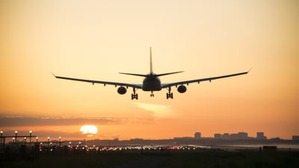
New Delhi, Sep 8 (IANS) The government’s mega infrastructure push, particularly highway development, offers significant growth opportunities for the hotel industry and we are eager to identify the right partners who can help us establish a groundbreaking hospitality segment that will become a success story, Dimitris Manikis, President EMEA, Wyndham Hotels and Resorts, said on Sunday.
Speaking to IANS, Manikis said that as road infrastructure and connectivity improve, more people are opting for road trips for business and leisure, boosting demand for quality accommodations along these routes in the country.
“We can strategically expand our presence by developing hotels near major highways and key service stations, providing travellers with convenient and comfortable options for overnight stays,” Manikis emphasised.
By offering a reliable and welcoming environment, these hotels will cater to the needs of families, business travellers, and tourists, enhancing their overall travel experience.
The world’s largest hotel franchising company, Wyndham is set to launch its first luxury hotel in India with the likely opening of the Wyndham Grand in Udaipur next year.
Wyndham currently has more than 40 hotels in the country and is aiming to further expand its footprint. Last year was the best one for the company in India in terms of increased occupancy and revenue growth.
According to Manikis, the future of the Indian hospitality industry looks promising, driven by rising occupancy rates and a strong pipeline of new projects across all segments.
“From a Wyndham perspective, we are keen on expanding our footprint by continuing to grow the brands we have already brought to market while, at the same time, looking to introduce budget to mid-scale brands to meet the growing demand for affordable, high-quality accommodations, especially in tier 2 and tier 3 cities,” he told IANS.
The expansion comes at a time when buoyed by overall infrastructure growth and the expanding commercial market, the hospitality investment sector in the country showed robust growth in the first half of this year.
Hotel investment transactions reached $93 million and are expected to reach $413 million by year-end — a 22 per cent increase compared to last year, according to reports.
According to Manikis, establishing properties at strategic locations will help them cater to travellers seeking convenient and comfortable stays, “positioning us to capture a larger market share”.
More and more Indian customers seek premium hotel experiences as disposable incomes rise. The top Wyndham executive said that they are focused on expanding mid-scale brands to meet the growing demand for quality accommodations among the expanding middle-class and value-conscious travellers.
“This approach allows us to scale rapidly in key markets, including tier 2 and tier 3 cities, where economic activity and tourism are on the rise. By positioning our properties in these emerging areas, Wyndham offers both business and leisure travellers value-driven stays without compromising on quality, catering to the evolving preferences of Indian consumers,” Manikis noted.
When it comes to budget hotels with enhanced amenities, the company is actively increasing its presence in this segment.
“With 3,360 budget hotels established in 2023, this segment presents a significant opportunity for us. We see it as a chance to expand our presence and deliver quality hospitality to a broader range of travellers,” Manikis said.
As Indian consumers increasingly seek affordable yet comfortable accommodations, “our strategy is perfectly aligned to meet their needs, offering value-conscious guests an excellent experience without compromising quality”.
There has also been a growing trend of staycations, experiential travel and a rise in wellness tourism packages in India.
“Yes, these trends are very exciting. The rise in spiritual tourism reflects a growing desire among travellers to explore India’s rich cultural and spiritual heritage. We’re also seeing a surge in leisure staycations, especially among employees looking to combine work with relaxation without long-distance travel,” Manikis told IANS.
–IANS
na/uk




